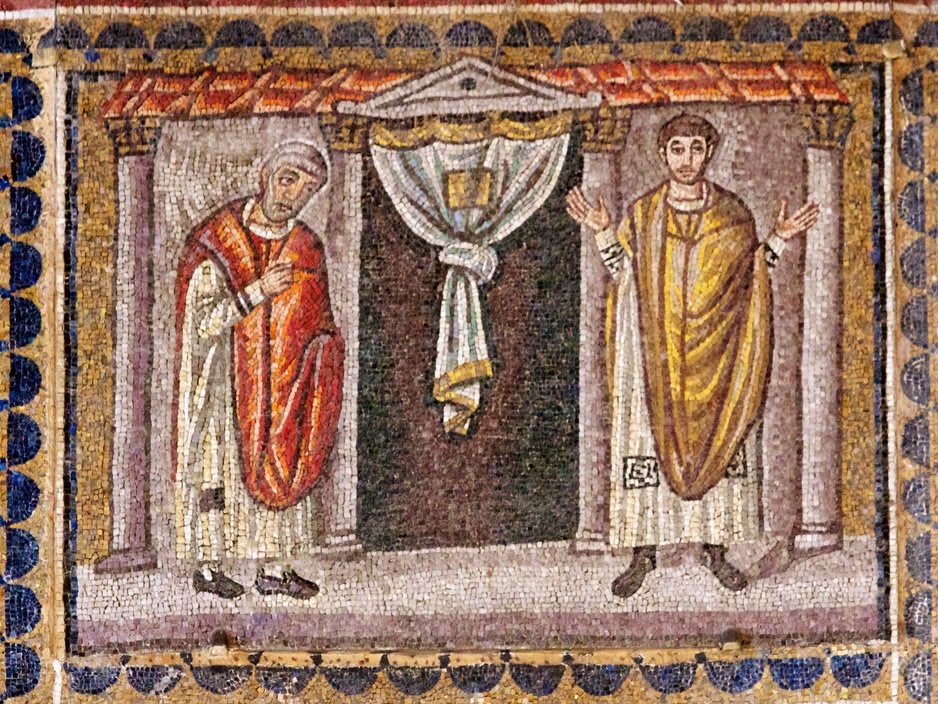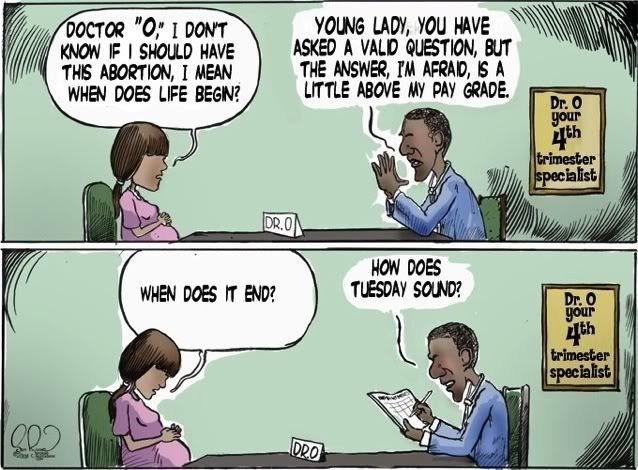1. Then came together unto him the Pharisees, and certain of the Scribes, which came from Jerusalem.
2. And when they saw some of his disciples eat bread with defiled, that is to say, with unwashed, hands, they found fault.
3. For the Pharisees, and all the Jews, except they wash their hands off, eat not, holding the tradition of the elders.
4. And when they come from the market, except they wash, they eat not. And many other things there be, which they have received to hold, as the washing of cups, and pots, brasen vessels, and of tables.
5. Then the Pharisees and Scribes asked him, Why walk not you disciples according to the tradition of the elders, but eat bread with unwashed hands?
6. He answered and said unto them, Well has Esaias prophesied of you hypocrites, as it is written, This people honor me with their lips, but their heart is far from me.
7. However in vain do they worship me, teaching for doctrines the commandments of men.
8. For laying aside the commandment of God, you hold the tradition of men, as the washing of pots and cups: and many other such like things you do.
9. And he said unto them, Full well you reject the commandment of God, that you may keep your own tradition.
10. For Moses said, Honor your father and your mother; and, Whoever curse father or mother, let him die the death:
11. But you say, If a man shall say to his father or mother, It is Corban, that is to say, a gift, by whatever you might be profited by me; he shall be free.
12. And you suffer him no more to do ought for his father or his mother;
13. Making the word of God of none effect through your tradition, which you have deliverd: and many such like things do you.
BEDE; The people of the land of Gennesareth, who seem to be unlearned men, not only come themselves, but also bring their sick to the Lord, that they may but succeed in touching the hem of His garment. But the Pharisees and Scribes, who ought to have been the teachers of the people, run together to the Lord, not to seek for healing but to move captions questions; wherefore it ms said, Then there came together to him the Pharisees and certain of the Scribes, coming from Jerusalem; and when they saw some of his disciples eat bread with common, that is, with unwashed hands, they found fault.
THEOPHYL. For the disciples of the Lord, who were taught only the practice of virtue, used to eat in a simple way, without washing their hands; but the Pharisees, wishing to find an occasion of blame against them, took it up; they did not indeed, blame them as transgressors of the law, but for transgressing the traditions of the elders.
Wherefore it goes on: For the Pharisees and all the Jews, except they wash their hands oft, eat not, holding the tradition of the elders.
BEDE; For taking the spiritual words of the Prophets in a carnal sense, they observed, by washing the body alone, commandments which concerned the chastening of the heart and deeds, saying, Wash you, make you clean; and again, Be you clean that bear the vessels of the Lord. It is therefore a superstitious human tradition, that men who are clean already, should wash oftener because they eat bread, and that they should not eat on leaving the market, without washing. But it is necessary for those who desire to partake of the bread which comes down from heaven, often to cleanse their evil deeds by alms, by tears, and the other fruits of righteousness. It is also necessary for a man to wash thoroughly away the pollutions which he has contracted from the cares of temporal business, by being afterwards intent on good thoughts and works. In vain, however, do the Jews wash their hands, and cleanse themselves after the market, so long as they refuse to be washed in the font of the Savior; in vain do they observe the washing of their vessels, who neglect to wash away the filthy sins of their bodies and of their hearts.
It goes on: Then the Scribes and Pharisees asked him, Why walk not your disciples after the tradition of the elder's, but eat bread with common hands?
JEROME; Wonderful is the folly of the Pharisees and Scribes; they accuse the Son of God, because He keeps not the traditions and precepts of men. But common is here put for unclean; for the people of the Jews, boasting that they were the portion of God, called those meats common, which all made use of.
PSEUDO-JEROME; He beats back the vain words of the Pharisees with His arguments, as men drive back dogs with weapons, by interpreting Moses and Isaiah, that we too by the word of Scripture may conquer the heretics, who oppose us; wherefore it goes on: Well has Esaias prophesied of you hypocrites; as it is written, This people honors me with their lips, but their heart is far from me.
PSEUD-CHRYS. For since they unjustly accused the disciples not of transgressing the law, but the commands of the elders, He sharply confounds them, calling them hypocrites, as looking with reverence upon what was not worthy of it. He adds, however, the words of Isaiah the prophet, as spoken of them; as though He would say, As those men, of whom it is said, that they honor God with their lips, whilst their heart is far from him, in vain pretend to observe the dictates of piety, whilst they honor the doctrines of men, so you also neglect your soul, of which you should take care, and blame those who live justly.
PSEUDO-JEROME; But Pharisaical tradition, as to tables and vessels, is to be cut off, and cast away. For they often make the commands of God yield to the traditions of men; wherefore it continues, For laying aside the commandments of God, you hold to the traditions of men, as the washing of pots and cups.
PSEUD-CHRYS. Moreover, to convict them of neglecting the reverence due to God, for the sake of the tradition of the elders which was opposed to the Holy Scriptures. He subjoins, For Moses said, Honor your father and your mother; and Whoever curse father or mother, let him die the death.
BEDE; The sense of the word honor in Scripture us not so much the saluting and paying court to men, as alms-giving, and bestowing gifts; honor, says the Apostle, widows who are widows indeed.
PSEUD-CHRYS. Notwithstanding the existence of such a divine law, and the threats against such as break it, you lightly transgress the commandments of God, observing the traditions of the Elders. Wherefore there follows, But you say, If a man shall say to his father or mother, It is Corban, that is to say, a gift, by whatever you might be profited by me; understand, he will be freed from the observation of the foregoing command.
Wherefore it continues, And you suffer him no more to do ought for his father or his mother.
THEOPHYL. For the Pharisees, wishing to devour the offerings, instructed sons, when their parents asked for some of their property, to answer them, what you have asked of us is corban, that is, a gift, I have already offered it up to the Lord; thus the parents would not require it, as being offered up to the Lord, (and in that way profitable for their own salvation). Thus they deceived the sons into neglecting their parents, whilst they themselves devoured the offerings; with this therefore the Lord reproaches them, as transgressing the law of God for the sake of gain.
Wherefore it goes on, Making the word of God of none effect through your traditions, which you have delivered: and many such like things do you; transgressing, that is, the commands of God, that you may observe the traditions of men.
PSEUD-CHRYS. Or else it may he said, that the Pharisees taught young persons, that if a man offered a gift in expiation of the injury done to his father or mother, he was free from sin, as having given to God the gifts which are owed to a parent; and in saying this, they did not allow parents to be honored.
BEDE; The passage may in a few words have this sense, Every gift which I have to make, will go to do you good; for you compel children, it is meant, to say to their parents, that gift which I was going to offer to God, I expend on feeding you, and does you good, oh father and mother, speaking this ironically. Thus they would be afraid to accept what had been given into the hands of God, and might prefer a life of poverty to living on consecrated property.
PSEUDO-JEROME; Mystically, again, the disciples eating with unwashed hands signifies the future fellowship of the Gentiles with the Apostles. The cleansing and washing of the Pharisees is barren; but the fellowship of the Apostles, though without washing, has stretched out its branches as far as the sea.
Catena Aurea Mark 7

 Prudentius has celebrated the triumph of this holy virgin who was a native of Merida, then the capital city of Lusitania in Spain now a declining town in Estremadura, the archiepiscopal dignity having been translated to Compostella. Eulalia, descended from one of the best families in Spain, was educated in the Christian religion, and in sentiments of perfect piety, from her infancy distinguished herself by an admirable sweetness of temper, modesty, and devotion, showed a great love of the holy state of virginity, and by her seriousness and her contempt of dress, ornaments diversions, and worldly company, gave early proofs of her sincere desire to lead on earth a heavenly life. Her heart was raised above the world before she was thought capable of knowing it, so that its amusements, which usually fill the minds of young persons, had no charms for her, and every day of her life made an addition to her virtues.
Prudentius has celebrated the triumph of this holy virgin who was a native of Merida, then the capital city of Lusitania in Spain now a declining town in Estremadura, the archiepiscopal dignity having been translated to Compostella. Eulalia, descended from one of the best families in Spain, was educated in the Christian religion, and in sentiments of perfect piety, from her infancy distinguished herself by an admirable sweetness of temper, modesty, and devotion, showed a great love of the holy state of virginity, and by her seriousness and her contempt of dress, ornaments diversions, and worldly company, gave early proofs of her sincere desire to lead on earth a heavenly life. Her heart was raised above the world before she was thought capable of knowing it, so that its amusements, which usually fill the minds of young persons, had no charms for her, and every day of her life made an addition to her virtues. 

